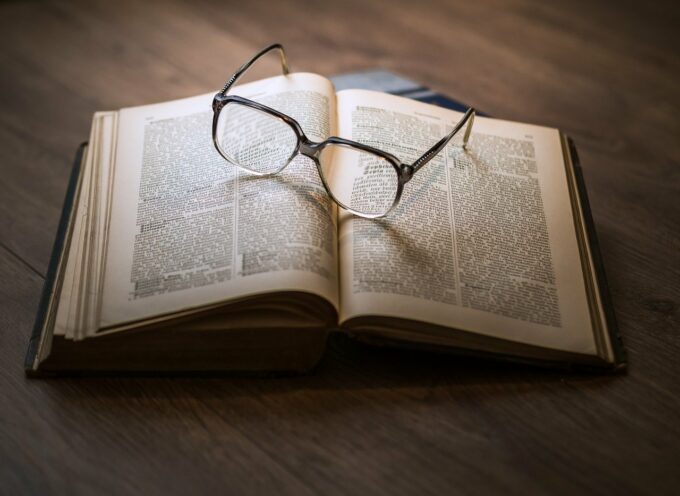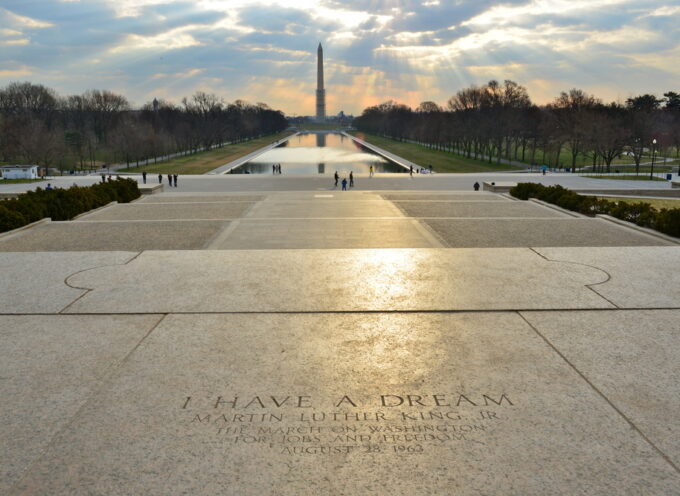There are three types of people in our great nation. There are, first of all, those who do not read. An AP-Ipsos poll recently revealed that 25% of Americans do not read books, while other polls have put the number higher, at around 50%. It is not that these Americans cannot read or that they do not accumulate knowledge. (No country’s citizens—and I mean none—bring more depth and import to subjects such as celebrity clothes, hair and makeup, and the intricacies of the Pitt-Jolie marriage than the citizens of the USA.) It is just that their knowledge is not gained from books. Second, there are those who read but do so aimlessly, choosing on a whim what to read and when to do so. Third, there are those who plan to read and who read with a plan.
If you are the third type of reader, or if you wish to become that type of reader, this post offers five tips for determining which books to read (and which not to read).
Determining what to read is more than a little important. Of the many books in any given library or bookstore, most can be left unread without any fear of intellectual, moral, or spiritual deprivation. Even (and sometimes especially) the bestsellers are not necessarily worth reading. So what should a thoughtful Christian read? Without being able to answer this question in specific, because each person’s callings, abilities, and tastes are unique, I will attempt to give some general principles that should apply to all.
1. Guard your time in the Scriptures.
There are hundreds of millions of books, but only one book inspired by God. Be careful that, in your reading, you do not neglect the reading of God’s Word. Each person has his own method. For me, the most helpful method is to choose a book of the Bible and read through it several times, outlining it, meditating on it, and applying it to my life. Usually, I will read a commentary to read alongside of that book of the Bible. Usually, I choose a commentary or study help that is pastoral in nature. I want to read something that aims to convict me and rouse me to action rather than merely to inform.
2. Don’t limit yourself by era, tribe, or category.
(1) Push beyond the limits of your era, refusing the chronological snobbery of limiting yourself to books written in the late 20th and early 21st century. Read old books. Put down the contemporary bestsellers for a moment so you can pick up Augustine, Dante, and Lewis. (2) Read outside of the parameters of your tribe. By this I mean that you will benefit from reading people who are not just like yourself. If you are an American evangelical, then you should set aside some time to read books by authors who are not Christian, evangelical, or American. (3) Expand your reading beyond the limits of a familiar category. If you read mostly theology, try something new and read some history, fiction, or devotional literature. If you always read non-fiction, buy a good novel or two. If you read mostly “practical” books, put them down and read a good work of theology (you’ll find that a good theology is the most practical thing a person could have).
3. Focus on reading the great authors more than on reading a great number of books.
In Christian theology and related fields, this means that you might want to pick a handful of theologians who have influenced the church and make sure that you have read at least a little bit of what they wrote. If you are a seminarian, you want to read Irenaeus, Athanasius, Augustine, Aquinas, Luther, Calvin, and Barth, the towering figures in church history. (Joel Osteen is not a towering figure in church history.) In fact, you may want to choose one or two of these authors and read everything they’ve written, and read some of their books multiple times.
4. Make a list of categories and read selected books each year, in each category.
My list includes the following categories: theology, politics and public life, philosophy, history and current affairs, international affairs, and fiction. Every year, I try to read a certain number of books from each category.
5. Read a few select newspapers, journals, and magazines.
During my time in the Ph.D. program at SEBTS, I began receiving First Things, a journal dealing with any and all issues at the intersection of religion and public life. Since then, I have also begun receiving and reading The New York Times, The Wall Street Journal, Comment, Foreign Affairs, The Atlantic Monthly, The Times Literary Supplement, The New York Review of Books, and the Chronicle of Higher Education. While First Things and Comment provide me with a lively discussion of religion and public life, Foreign Affairs allows me to keep track of international affairs, The Atlantic Monthly allows a peek into things that are of interest to the broader culture, The Times Literary Supplement and The New York Review of Books serve notice of a wide array of recently published books, and the Chronicle keeps me abreast of developments and debates in higher education.
Conclusion
Your reading list will not be the same as mine; browse Barnes & Noble and find some magazines and journals that help you stay abreast of the rest of the world. The big point is that you should try to read widely, deeply, and through the lens of a Christian worldview. There was a day when Christians were committed to sustained reading and reflection. However, Americans seem not to be, on the whole, prone to serious reading and thinking. (we tend to treat the brain like the appendix, as if it has no immediately discernable function.) As a result, most of the books being published are claptrap. (As a result, winning a “book of the year” award these days is like being the valedictorian of high school summer school.) Even book clubs (such as Oprah’s) that claim to be serious reading communities are often more emotive than rational, tending toward heavy breathing, sobbing, and hugging gently rather than conscious and careful reflection on the important questions of life).
So, plan to read and read with a plan.
Subscribe
Never miss a post! Have all new posts delivered straight to your inbox.








Being now in my late 60’s, I appreciate your excellent advice and am determined to do just as you say and devise a reading plan for the remainder of my days. Looking back, I would say that my approach to reading has been largely similar to what you recommend. Still, I am dismayed to realize the limitations of my knowledge and the number of classic works I have sometimes heard about but never read.
The upside is thinking of all that I have to look forward to if granted the time. Reading has already enriched my life immeasurably, and I can always live in the hope that “the best is yet to be.”
Agreed! I’ve got a long list of classics that I’ve not yet read, and look forward to reading. I hope the Lord grants me longevity and, if so, I’ll do my best to enjoy reading them.
Dr Ashford thanks for this insight. I would also recommend reading biographies.
Good point about the biographies. How did I miss that? Biographies have been absolutely formative for me.
Your statement about all the books better left unread resonated with me. Finding great books is like searching for gold. Since I, too, like to read about contemporary life and culture change, I am often trying to filter through mountains of options without much hope of discerning a real gem before I buy the book.
Your post is good advice.
Thank you Katherine.
You mentioned that you should focus on finding high quality authors, rather than just reading a lot of books. I’ve been looking for high quality spiritual, christian books to read. Perhaps there’s an author I can find online that has a collection on the topics of spirituality. Thanks for the great read.